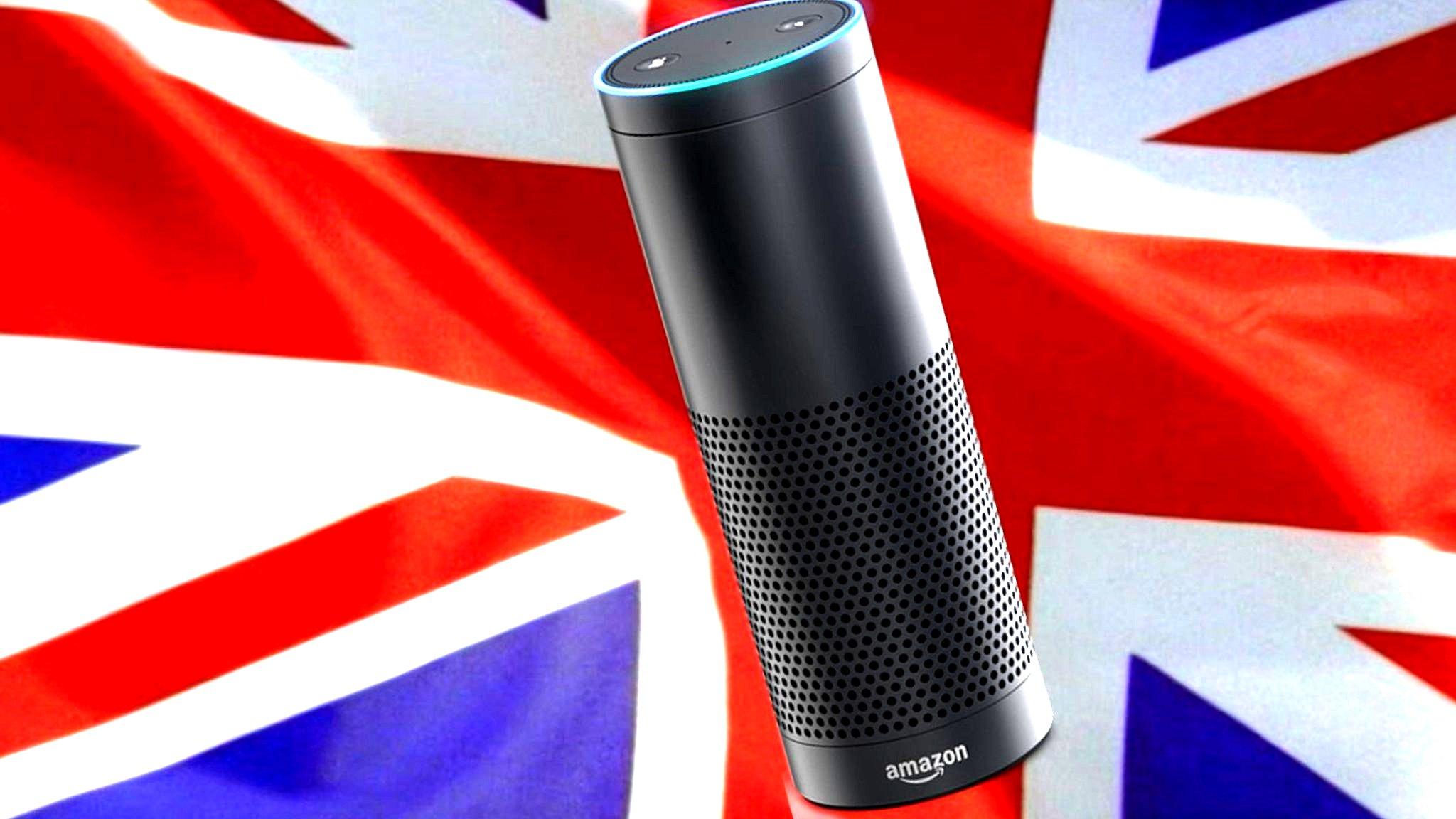CES 2017: Amazon's virtual aide Alexa shouts above rivals
- Published
- comments
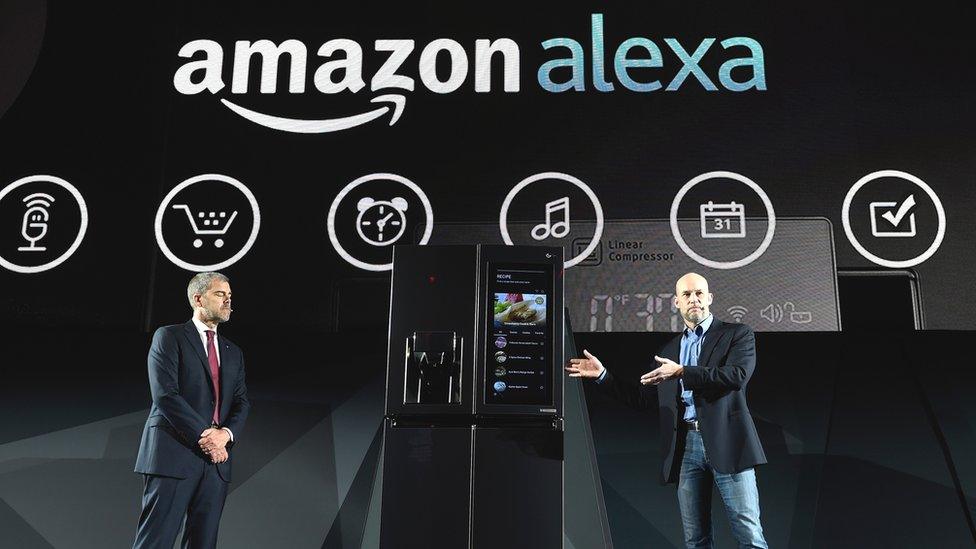
A fridge with personality was launched at CES this year
Virtual assistants are everywhere at CES this year - but one speaks louder than the rest. Amazon's Alexa has popped up in a bewildering list of devices including fridges, cars and robots.
Manufacturers are clearly interested in making their appliances voice-operable, and many see Alexa as a great way to do this.
But having Alexa also allows the appliances to gain capabilities, such as streaming music and turning smart lights on and off.
How did Alexa come out on top and how will it benefit Amazon?
The firm was quick to notice the potential of voice control following the rise of smartphone apps that could interact with appliances, answers tech analyst Dinesh Kithany at IHS Technology.
"Alexa's rivals haven't been promoted quite as well," he told the BBC, though he noted companies adopting the assistant must think of genuinely useful ways to integrate it into their products.
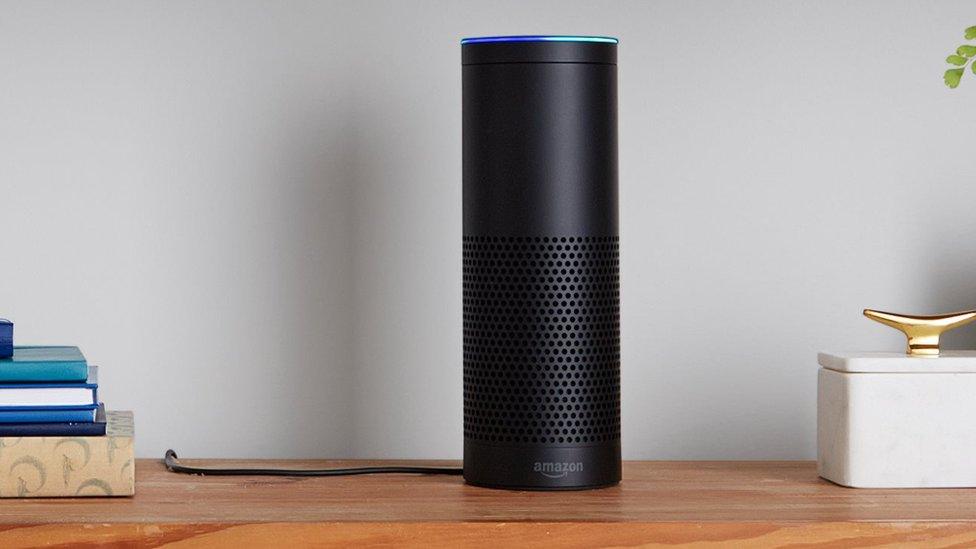
Alexa made its debut on Amazon's Echo speakers
Manufacturers are able to design new "skills" for the assistant - meaning the AI is not limited to what Amazon has built in.
Alexa can, with a quick bit of programming, be adapted to lock car doors or tell you when your washing machine's cycle will finish.
Perhaps this is how Amazon has cornered so much of the market - by explicitly designing a flexible AI that allows companies to implement it as they see fit.
Over the last seven years, the world has witnessed the rapid proliferation of Google's Android operating system - now in more smartphones than any other OS by far, as well as many TVs, watches and computers.
Part of this meteoric rise is down to the fact that Google gives Android away for free to device manufacturers - just like Amazon is doing with Alexa.
Despite the search giant having a long history of voice recognition research, external, it has only just started promoting its own Google Assistant to third parties. That gives Amazon first-mover advantage.
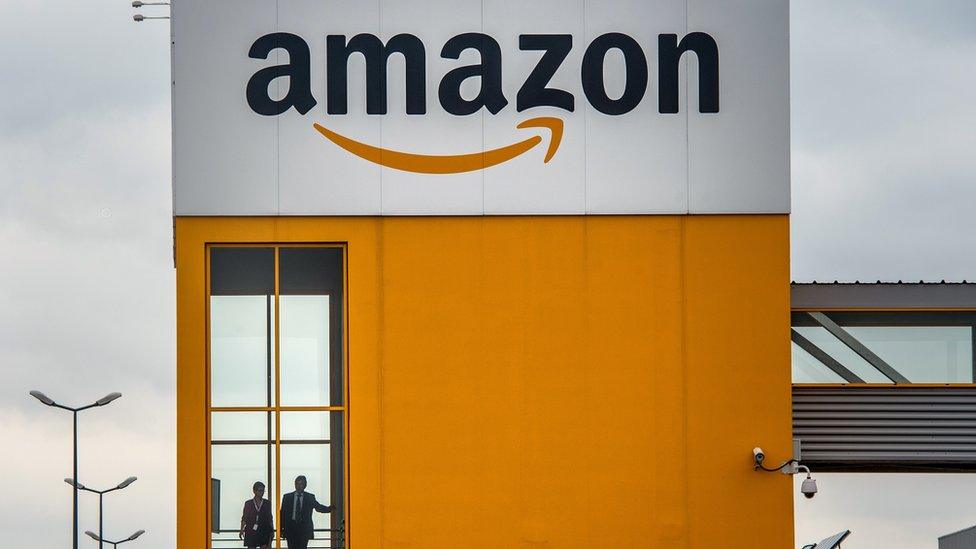
Who would have thought an online retailer would be leading the virtual assistant revolution?
While a glance around CES's show floors suggests Alexa is poised to dominate, it's worth remembering that this is a US trade show.
Amazon is not quite as global a company as Google or Microsoft - the online retailer doesn't have a website for countries in Scandinavia, the Middle East or Africa, for example.
And not all implementations of Alexa make the assistant easy to access, notes Lauren Goode at news site The Verge, external.
She tested headphones by OnVocal that make the aide accessible - via a tiny button that needs to be pressed to activate it.
"You'd kind of think that walking around while wearing these is just as good as having an Echo strapped to your body. It's not," she wrote.

Rory Cellan-Jones meets the Alexa-powered robot Lynx
Analysis: Rory Cellan-Jones, BBC Technology Correspondent, Las Vegas
She's the star of CES even though her creator isn't exhibiting on the show floor. Amazon's Alexa was the first voice assistant to turn up in a compelling consumer product, the Echo speaker, rather than just on a smartphone.
Although Google Home has now joined the fray it's clear who's in the lead. Across CES, you can hear Amazon's creation at work.
Who'd have thought a few years back that an online retailer with a patchy record when it comes to hardware devices would be the single most influential player at a consumer electronics event?
In the past, it has been Apple and Google who've been able to dominate CES without even turning up - now Amazon is looking like the tech industry's thought leader.

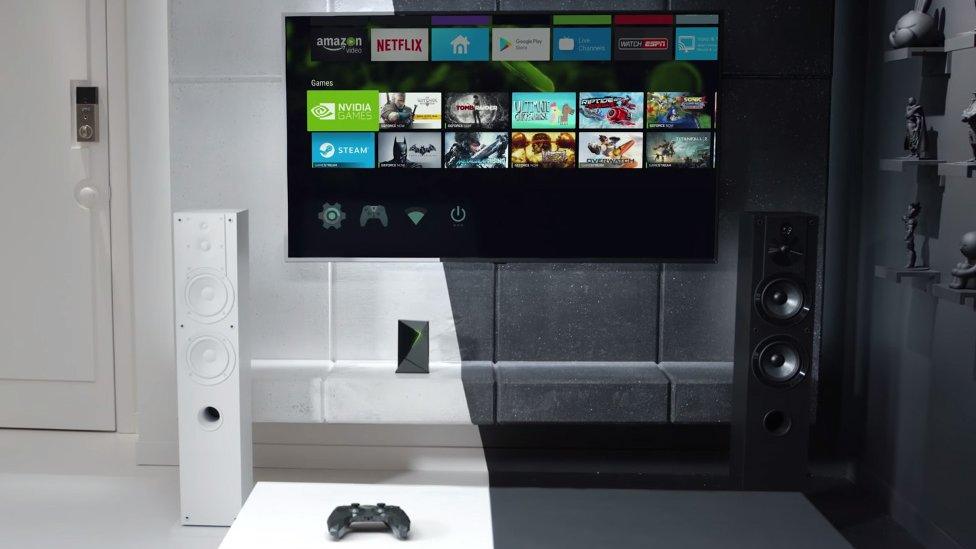
Nvidia has chosen to integrate Google Assistant with its new streaming box
While Alexa may be popular, it certainly has rivals.
Nvidia announced at CES that its media streaming device, Shield, external, would feature Google Assistant - allowing users to display photos on their TV screens via voice command, for example.
It can also connect with the Nest smart thermostat and adjust the temperature - or turn on smart home devices.
Microsoft's Cortana will, of course, be available in Windows 10 devices - a wide array of which were launched this week, external.
But curiously, despite publishing a teaser video for a Harman Kardon speaker featuring Cortana last month, the product failed to materialise.
Harman Kardon told the BBC that the device was "not ready for display".
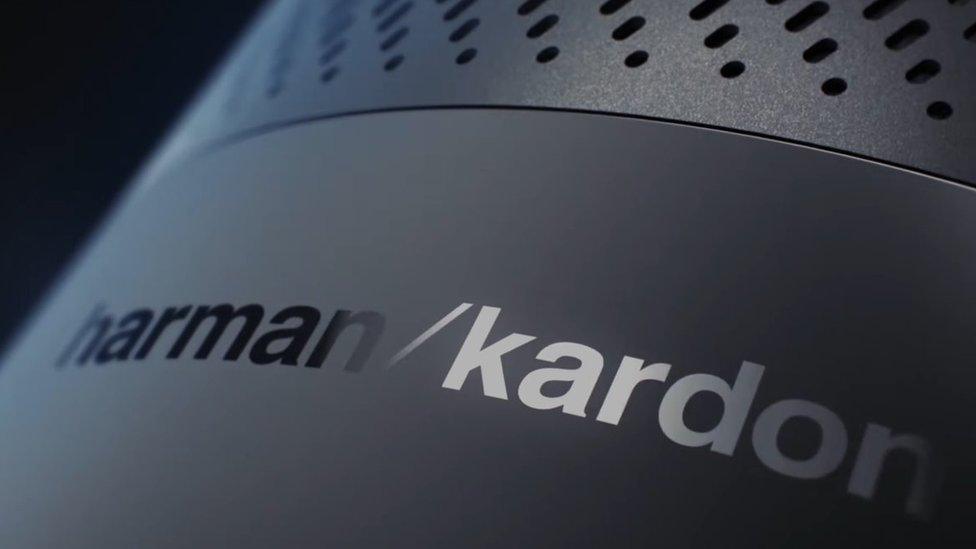
A Harman Kardon speaker featuring Cortana, though teased in December, was not at CES
The battle of the AIs doesn't even end there. In October, Samsung acquired fledgling AI Viv, external and is expected to launch it with the firm's Galaxy S8 smartphone later in 2017.
It is worth noting that the South Korean tech giant has also agreed to buy Harman Kardon, external.
Will Viv nudge out Cortana in future Harman Kardon speakers and one day give Alexa a run for its money? It's anyone's guess at this point.
Say 'Please'
And there was an interesting announcement from Mattel's Nabi brand, which makes child-friendly tech.
Its new Aristotle speaker incorporates Alexa and will soon feature Cortana, too.
Parents can even set it so that children speaking to the device must say "please" when uttering a command.
It should be no surprise that more than one branded virtual assistant can be accessible via a single device - they are summoned from the cloud, after all.
In the future, other appliances might allow users to call on the virtual assistant of their choice by name for specific tasks. Not just one digital butler, but a whole staff.
Apple's Siri is not to be forgotten. It can be used to interact with several smart home devices unveiled at CES - including a smart smoke detector by Netatmo and Chamberlain garage door openers, external.
Even more voice-activated assistants are entering the market - Olly the robot develops a different personality to suit each of its users
Voice control is "the way of the future", said tech analyst Adam Simon from Context.
"It has really galvanised the smart home market," he said. "At last we've got something bringing it together."
One downside cited by some is the potential for a greater proliferation of microphones and AIs to erode privacy - particularly in intimate settings such as the bedroom.
But Mr Simon told the BBC that consumers would decide whether or not to tolerate this.
"My own inclination is that people will accept that this is a necessary evil," he said.

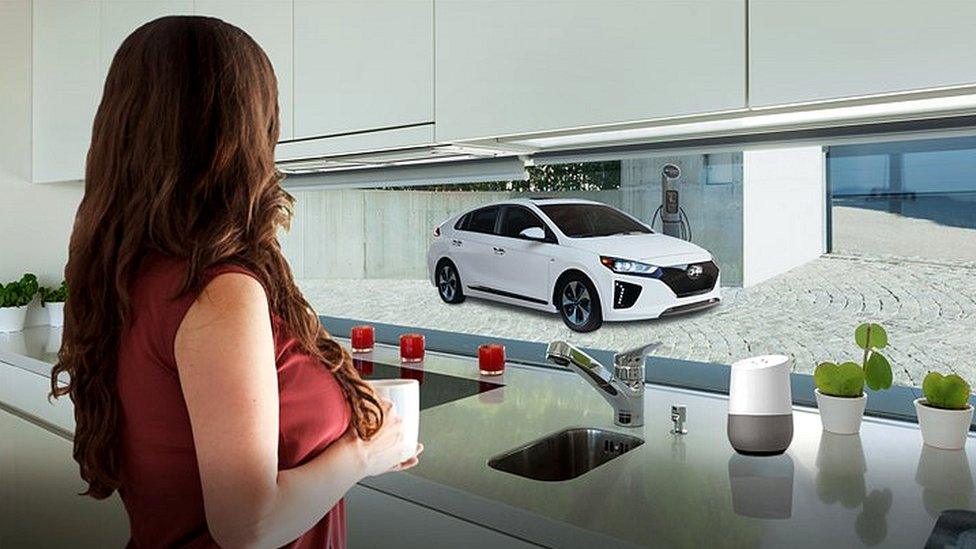
More from CES 2017:
Follow all our CES coverage at bbc.co.uk/ces2017, external

- Published6 January 2017
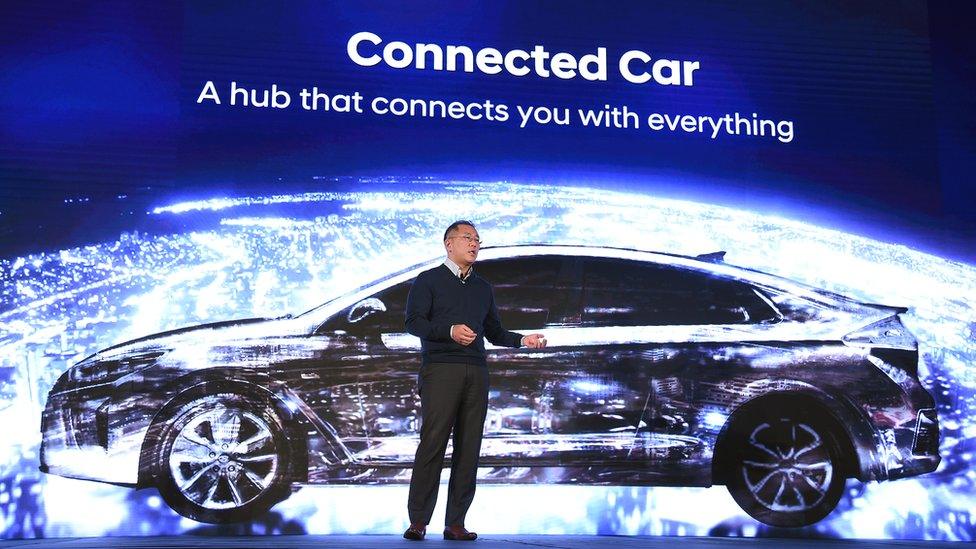
- Published5 January 2017
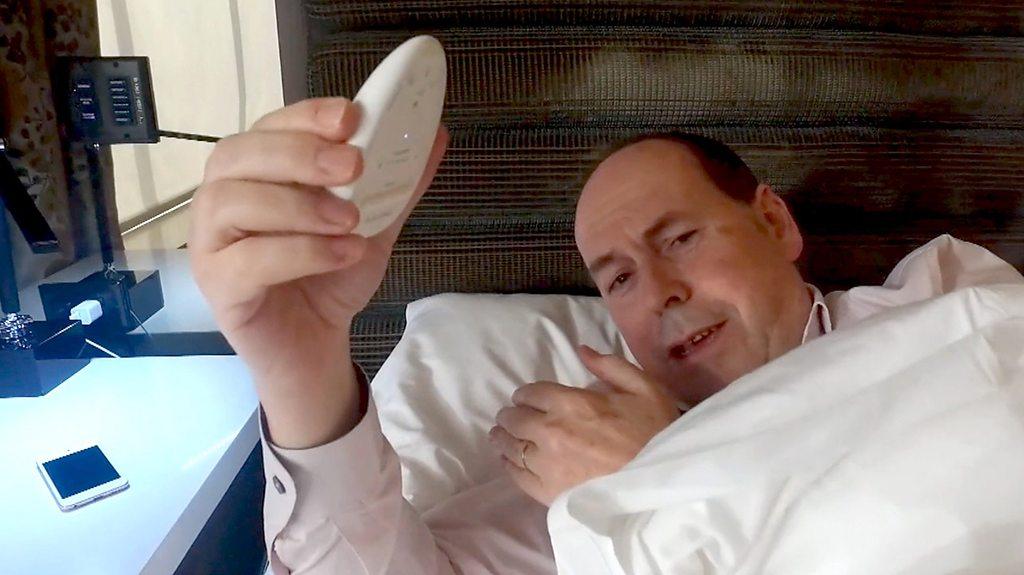
- Published4 January 2017
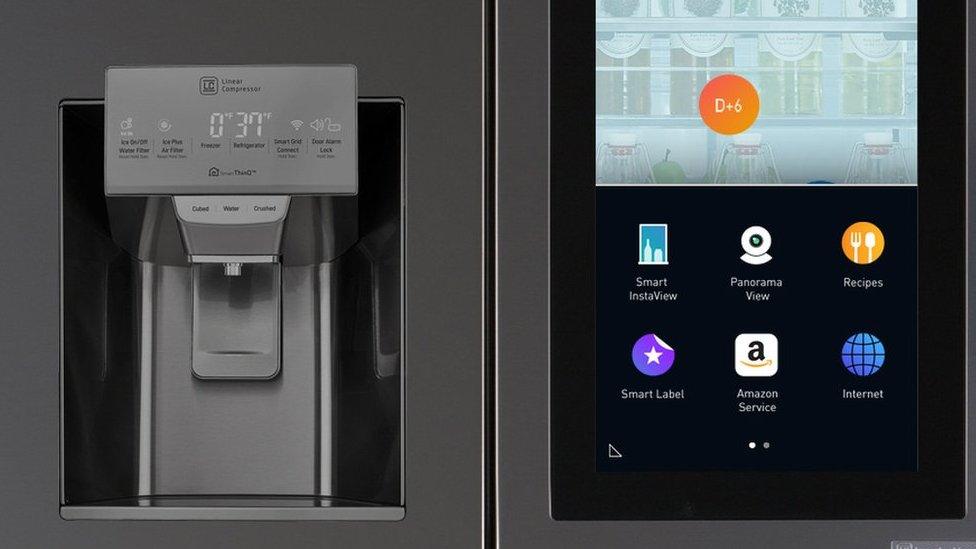
- Published5 January 2017
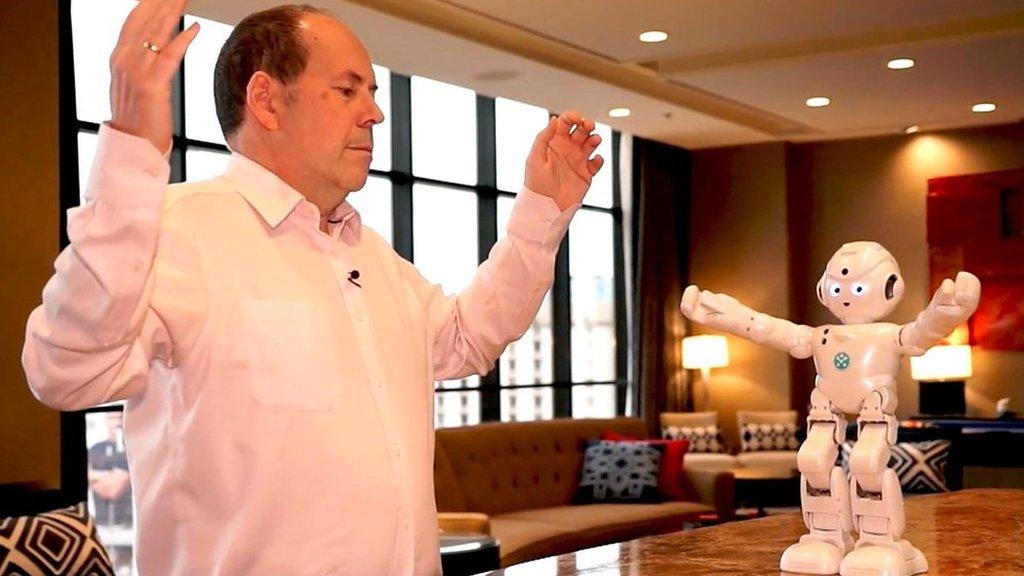
- Published14 September 2016
